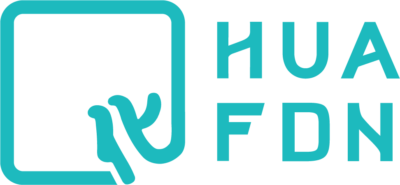For members of the Asian diaspora, the passing of Asian Heritage Month can be bittersweet: a mixture of longing for or remembrance of positive memories, but also navigating the harsh realities of disconnect, pain, or intergenerational trauma. Particularly for diasporic youth working in anti-racism, it can be especially hard to feel like we can welcome our families and loved ones into these spaces; most of us are never given the tools to navigate these conversations with people so close to our hearts, and even bringing up the topic of ‘racism’ can feel heavy when we know our family members have experienced the effects of it in real, tangible ways.
On the heels of hua foundation’s month long Pacific Islander and Asian Heritage Month social media reflections, Jamison Schulz-Franco (from the Resilience BC Anti-Racism Network) and christina lee (hua foundation manager of operations + special projects) chat about empathy, shifting dynamics, and bringing our loved ones into our work, in a landline heart to heart. This conversation has been edited for clarity and flow.
Jamison: Hey christina, thanks for accommodating this last minute change to a landline call as I wait out a power outage.
christina: No worries – it’s nostalgic in a lot of ways for me. I remember a lot of long phone calls with friends after school, and how novel and exciting it was when one of my friends got three-way-calling.
Also, my dad has been lamenting the slow death of the landline for years, and refuses to disconnect ours for this exact reason! For my parents it’s definitely a lived experience from another time, haha.
J: Yes! The only reason I have access to a landline right now is because I’m staying with my mom on Snuneymuxw territories [Gabriola Island]. It’s funny those things that our parents really hold tight to, and maybe seem like artifacts from the past, but end up being useful.
c: I’ve actually been thinking a lot about how our relationships with our parents (and how we learn from each other) shift as we grow older, and how a huge part of that growth also includes asserting independence from those who raised us: for me, proving to my parents that I’m a competent and confident adult, someone who can make good decisions and be trusted with responsibilities.
And I think about all of the instability that my parents went through, growing up in scarcity: scarcity of material things, scarcity of networks, of people who looked and sounded like them. And for them, a huge part of parenting was proving to the world, to themselves, and to their children that they could provide the stability we needed to thrive. So when my work today actively cuts away at the structures of stability that they worked so hard to secure me into, it might be hard at first for them to understand why I would want to do that.
J: Wow, yes that really resonates for me. I think it really helped as I moved out for my undergrad, and to have that separation and distance to give me the space to see my parents for who they are, as whole humans with whole experiences, not just as my parents.
I only just recently was talking to my dad about some of the racism that he experienced when he first came to Canada, and it really unearthed a lot of stories that I had never heard from him before.
One of those stories that really stuck for me was about how his first job here was as a bouncer at a bar. I had known that much before, but this time around he told me a lot more about the overt racism that he experienced in that job, and the tangible violence of racism. Not only the physical fights and verbal interactions, but also the violent threats that questioned his right to live here, to work here, and even just exist as a human being, you know?
Our bodies are our greatest teachers, and in those types of moments, and through those experiences, I think he learned from his own body to be guarded and careful. It really made me think about the different ways that we define racism, and how that might affect his understanding of the work that I do now.
c: I think for our elders, as well, unearthing those parts of their pasts can be full of pain and trauma, and that maybe it just never felt like ‘the right time’ to share them before. It’s almost as if these conversations about our work in anti-racism act as an open space for them to share these pieces of themselves in a more indirect way, and for them to see themselves in our work.
It’s really great to hear that you’ve built that relationship with your dad now though, that he feels comfortable sharing those pieces of his past, and it makes me wonder how we can extend that safety net of trust to them to talk about even bigger things.
J: I think what’s really shifted for me, is to approach the conversation with patience and understanding about their histories, and the ways that they’ve had to walk the lines between their cultures and the new spaces they had entered. And for folks who have lived experiences of physical and violent threats of racism, that can be re-traumatizing to bring it all up again.
c: I get that– for our parents’ generation, a huge part of their own anti-racist work (and that, it was) was in the space of self-preservation and survival. Giving credit where it is due, and helping them to understand that our work today is an extension of that, is part of the process of helping them to feel welcome into a version of anti-racist work that is about self-acceptance and courageousness to ask for more.
It’s less about trying to reverse the dynamics from our childhoods (who is teaching and who is learning), but instead to shift them entirely so that we are learning from each other, a two-way street.
J: Damn! Yea!! And even for those who might not have the kind of relationships with their families where they can do that work, I would say applying that level of empathy and curiosity in a broader sense to the way that we approach these conversations is huge, even in public spaces.
c: Absolutely, and I think this all ties really well back into what you said about our bodies being our greatest teachers. I think back to my interview with Kathleen, where she talked about the power of feeling held, and I wonder if there are ways that we can adapt that approach to folks who have learned to adopt that guardedness.
How can we nurture spaces for our parents (or other parental figures) to feel held in the ways that they may have held us as we were young and growing? So that they feel safe and willing to share in this learning with us now?
J: This feels like a good place to pause and reflect on all that we’ve discussed so far. Our conversations have given me a lot more questions than answers, and I really value that. I like to let these questions sizzle within me! I appreciate you christina.
c: It’s the landline heart-to-heart! I’ve loved chatting with you and look forward to keeping this conversation going.
The Resilience BC Anti-Racism Network sees a future free from racism and hate. We are bringing communities together to do the hard work and make this vision a reality.
hua foundation is a youth empowerment non-profit working to strengthen capacity among Asian diasporic youth, in solidarity with other communities, to challenge, change, and create systems for a more equitable and just future.


